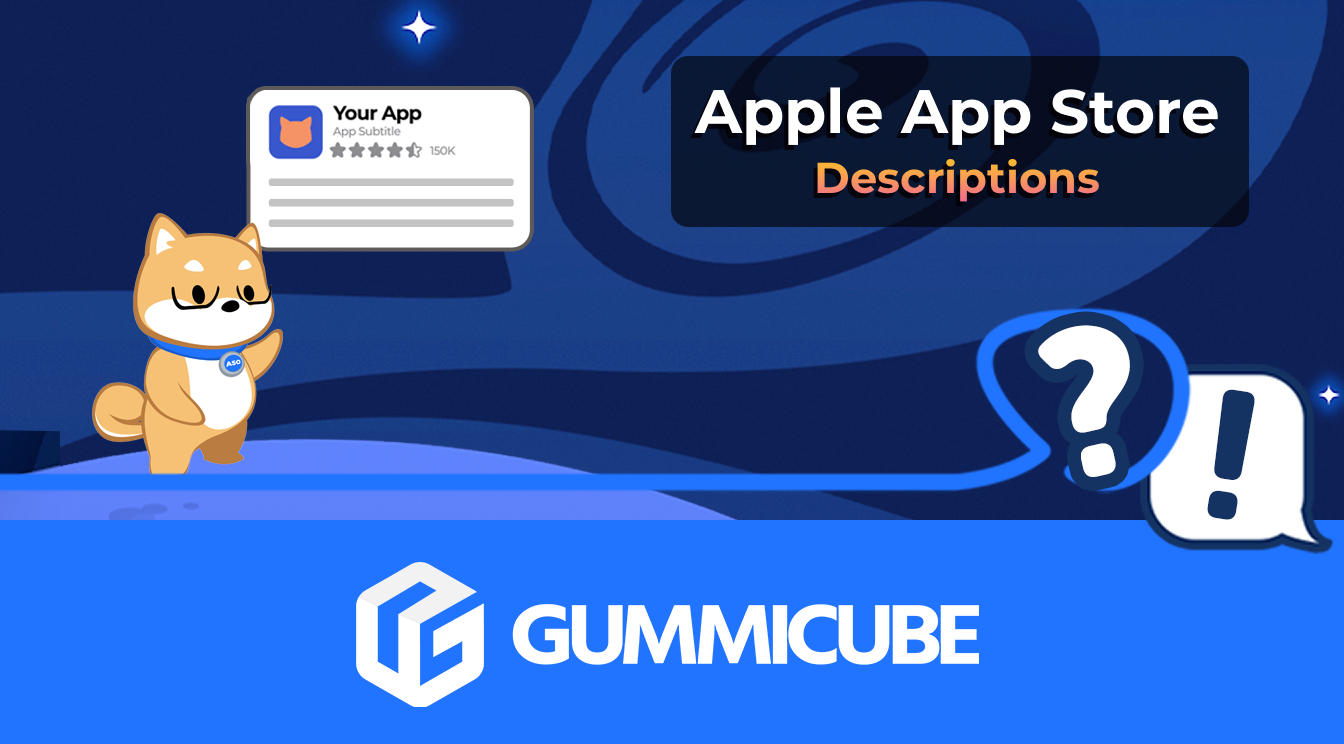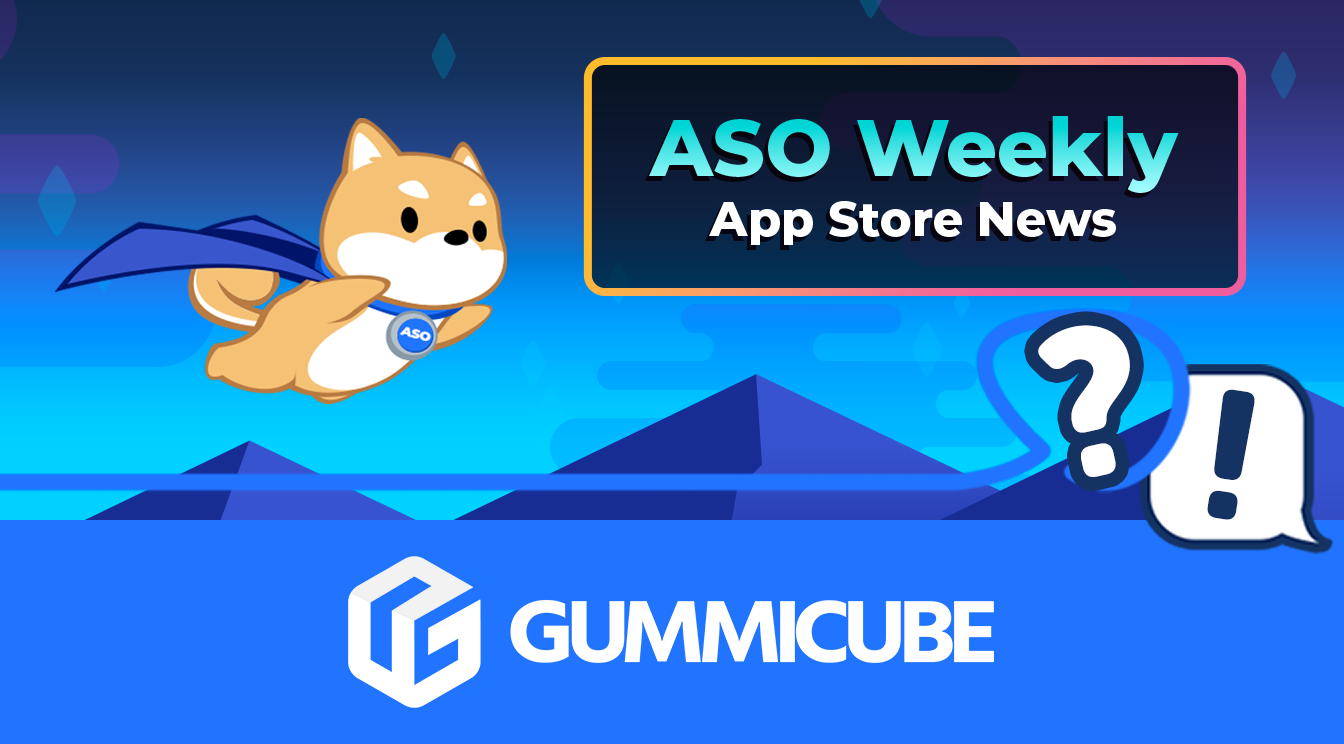
How to Write an Apple App Store Description
Posted on July 17th, 2024
Learn how to approach App Store descriptions the right way so you can effectively engage and convert users.

Welcome to this week’s ASO Weekly – Gummicube’s recurring segment where we discuss some of the biggest events in the mobile app industry, app store developments, and how they may affect your App Store Optimization (ASO) strategy.
This week, we’ll be exploring:
Why did Apple pause gambling-related ads on product pages? After significant pushback from developers housing their apps on the App Store, Apple decided to nix advertisements of gambling apps for the time being. The push and temporary pause on the ads come after developers voiced their concerns over their rather unfortunate or misleading suggestions and placements.
Developers pointed out that some gambling apps showed up in suggested, “you might also like” for gambling addiction recovery apps. Whether intentional or not, this algorithmic mishap isn’t the first time Apple’s suggestions have led people along a paradoxical path. Some relationship helps app users and developers cite that casual dating apps appear in recommended suggestions, or that adult video apps appear in children’s video category searches.
Apple hasn’t released a statement as to how or why some of these suggestions seem so left-field. Speculation suggests that it's largely based on app metadata indexation processes which automatically categorize apps based on certain keywords or phrases. Nonetheless, Apple has since addressed the issue with gambling ads for the time being. The question still remains, is this a permanent move going forward? Or will advertising requirements require a more manual approval process across all categories moving forward?
With the new wave of NFT and crypto marketplaces now coming to the App Store, there’s new regulation to deal with on new fronts. In a statement from Apple. Crypto exchanges need to take place through Apple’s in-app payment mechanisms when purchasing within the store, meaning unlockable content or functionality cannot be purchased with in-app mechanisms like crypto coins or wallets.
This comes after a more recent push for NFT and crypto apps to have legal licensing requirements to function and operate within the Apple App Store set to be updated by this Monday.
For the NFT marketplace apps specifically, any sort of transactions related to listing, minting, and transferring tokens must be made in-app which Apple will now facilitate. This new change, however, doesn’t come without pushback.
This new payment guideline, like most Apple transactions, will come with a maximum 30% cut of all purchases made through these apps – a note which many developers seem to resist. A push like this continues to fuel criticism over Apple’s “monopolized” in-app purchase mechanisms. Pointing out that it is essentially “robbing” app makers and developers of rightfully owned sales and transactional freedom.
Want to learn more about App Store Optimization and ASO tools and technology? Contact Gummicube and we’ll help get your strategy started.

Learn how to approach App Store descriptions the right way so you can effectively engage and convert users.

Learn how to grab your audience's attention through effective and engaging app store preview videos.

Welcome to Gummicube’s ASO Top Trends Vol 3 – a quick, one-stop-shop for the latest developments in ASO.